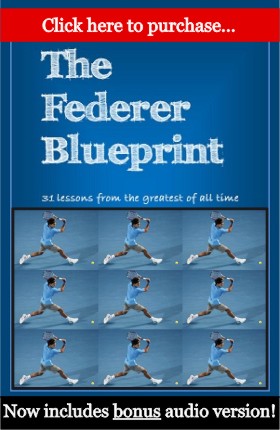To the 10,000 hour haters: It’s not about the number
21 Jun
There are people who fiercely oppose the 10,000 hour rule. Great! Debate over such an idea can be healthy and constructive, but unfortunately many of the arguments centre on only the name – “The 10,000 hour rule” – rather than its practical implications for young tennis players. They ridicule the idea of such an exact time-frame for expertise (mockingly describing the transition from loser to champion as the 10,000th hour ticks over), and cite all types of examples that defy “the rule”. In reality however, the 10,000 hour rule does not assign any magical powers to the number 10,000, nor does it actually claim to be a rule (a rule of thumb is a better way of putting it).
The fact is, sometimes an important concept needs a catchy name, and in this case it works. 10,000 is such a round number and so easily remembered and repeated, that this “rule” is now well known in most sporting circles. But unfortunately, the real essence of this concept is not well understood.
Let’s start by dealing with the number itself…
Firstly, yes of course 10,000 hours is an estimate.
It is not a magical number and may be higher or lower depending on the following factors:
- Specific sport. The biggest factor here is how competitive the sport/activity, but also how complex the sport is, how many people play it around the world, and how many play as professionals (how much money in the sport). 10,000 hours has been used as an estimate (based on averages) for competitive (and lucrative) sports such as tennis. If I were to take up underwater hockey then I could reach the top far quicker.
- Quality of practice. Practice is not about quantity alone, the quality of practice is equally important. Number of hours is used simply because quantity is far easier to measure than quality. Note that for any athlete some practice is high quality and some is low quality (high quality practice is difficult to achieve in all sessions). This means that while in any one practice session an athlete could achieve extremely high quality, the average for all sessions will be lower and usually comparable between those who have reached a world-class level (i.e. total hours will tend to be similar, although there is still some potential for higher-quality practicers to get ahead).
- The term world class is often used, but this is not well defined and could refer to someone in the top 50 in the world or number 1 (which could easily be worth 3 years or 3000 hours alone).
- Skills transferred from other sports. Co-ordination developed from other sports may give a head-start in a new sport.
The point is not that 10,000 hours guarantees success, nor that 10,000 hours is any more correct than 8000 or 15000 hours. But that there are no shortcuts! The person to succeed Federer/Nadal/Djokovic WILL NOT be a 5000 hour player. Why? Because such an inexperienced but “gifted” player does not exist in the upper echelon of world tennis (despite the millions of players out there). Because we are what we DO, not what we ARE. The players at the top invariably had exceptional childhoods that have enabled them to acquire more high quality practice than anyone else.
Those who proclaim natural talent and genetic gifts to be an important part of the equation are implying that talented people get an easier ride or shortcuts to the top, but where are these people at the top of world sport? When we look at the histories of the very best performers in highly competitive sports (the Federers, Jordans, Gretzkys, Woods,…) their performance is explainable. Their practice history was extraordinary. And this I think puts the “natural gift” theories to the sword.
What is the 10,000 hour rule really saying?
This I think is the important message for young people to learn (and a powerful motivator): that your results and career depend on what you DO, not what you were born with.
Compare this with the popular message that “No matter how hard you work, most of you will never be capable of reaching the top because of your genetics” – a stance that some are actively fighting to promote!!! This attitude is one of the reasons why many countries don’t produce the number of top players that they should; because they try to pick or predict champions rather than produce them…
As always I’d love to hear your thoughts, so please comment below…
Dave


No comments yet